Ashford joins in national call for Government intervention to find nutrient solution
Published: 12/07/2023
Ashford Borough Council Leader, Cllr Noel Ovenden has joined a growing number of local authority leaders across the country in signing a letter asking Prime Minister, Rt Hon Rishi Sunak MP, to act now on nutrient neutrality.
Without it, they say, it will continue to stifle housing development and local economies. The letter from the District Councils’ Network, outlined the concerns from local government leaders, and demanded the Government intervene.
A roundtable discussion on the issue took place at the Local Government Association Conference in Bournemouth last week. The letter outlines how nutrient neutrality has effectively stopped housebuilding in over a quarter of England - representing about half the housing potential in the country.
‘Nobody wants to see pollution in our rivers and watercourses. But the moratorium on housebuilding caused by Natural England’s guidance on nutrient pollution has created severe local difficulties without any meaningful environmental benefit. Put simply, not building new homes is doing nothing to clean up our rivers and does very little to slow the increase in water pollution’, the damming letter went onto say.
The evidence from local councils is compelling. In Ashford (Kent) the delivery of 10,000 much needed new homes has been halted with a particular impact on affordable housing. The council has been forced to agree two-thirds fewer affordable houses as viability has been undermined.
Possible strategic solutions, such as wetlands, have also stalled, despite the council being willing to invest considerable forward funding, because key Government organisations are not working constructively with the local authority and constantly change their advice or stance on the matter.
In the letter, Council Leaders appeal to the Prime Minister to ‘recognise that the policy isn't meeting the objective it set out’ and ask him to ‘consider whether the damage to the economy, to employment and the additional burdens placed on families justifies intervening to resolve the problem properly.’
Namechecking several government organisations the letter adds, ‘The nutrient neutrality issue has been live for four years now, but we have been unable to nail down those responsible in Defra, the Environment Agency, Natural England and the water companies. Instead, these organisations have passed the buck to councils that do not have the powers, expertise, resources or powers of enforcement to clean up our rivers or control runoff from farmland.’
‘Councils are certainly prepared to play our part in delivering a solution but we call upon you to ensure that the organisations responsible for the cleaning and stewardship of our rivers are acting in a constructive and co-ordinated fashion to resolve this impasse place the burden on the organisations empowered to do so and free up councils to get on with building the homes we need to boost our local economies’, it concluded.
Cllr Noel Ovenden, Leader of Ashford Borough Council, said: “With hundreds of desperately needed affordable, shared ownership and social homes held up by the moratorium on building in the Stour Valley due to the ongoing pollution of the Stodmarsh nature reserve, I last week met with Council Leaders from across the country to discuss our mutual concerns, ranging from homelessness to economic decline in the building sector.
“We were unanimous in our opinion that the problem runs to the heart of Government. I proposed that a cross-party letter should be sent direct to No 10 Downing Street, which was agreed by all. A document was prepared that I was more than happy to add my signature to.
“Let’s hope that our Prime Minister acts quickly to help us get our Local Plan back on track to deliver much needed homes in the right places and put a stop to the speculative applications we are seeing across the borough that, with this situation, we are powerless to halt.”
Background
Ashford Borough Council continues to respond to the various issues that have arisen from the need for new housing and other developments to achieve ‘nutrient neutrality’, due to the deterioration of Stodmarsh Lakes.
Since Natural England issued their advice in July 2020, planning applications for thousands of new homes located within the Stour Catchment and/or which discharge foul water into the catchment have not been able to progress, unless they can achieve nutrient neutrality.
In response to this issue, the council has been working on a way to deliver long term nutrient mitigation, by identifying suitable land in the borough for strategic wetlands, which can generate off-site nutrient mitigation that can then be secured by developments, allowing them to be granted planning permission.
In March this year members agreed to support the continuation of this work on acquisition of potential sites for this purpose. They also agreed the proposed contents and broad scope of a future Nutrient Neutrality Supplementary Planning Document (SPD), and for this to be subject to public consultation in due course.
The numbers
Many housing applications in the Stour catchment have been unable to be determined. This ‘hold’ on granting permissions on affected sites will continue until a solution is found. Around 90% of the planned housing development set out in the recently adopted Local Plan (2019) is ‘caught’ and in this context cannot come forward now, until nutrient neutrality is achieved.
The total planned growth caught equates to around 10,000 homes up to 2030, with 6,000 of these homes subject to active planning applications – i.e. in the planning system being promoted by a developer awaiting planning approval but that currently a decision cannot be made.
Strategic wetland
A core component of the council’s strategy is the creation of strategic wetlands within the borough as a means of providing off-site nutrient mitigation. Discussions are ongoing, yet both parties have agreed an approach and in principle, the financial sum that would be involved in acquiring the wetland. It is also agreed that the wetland can only be considered acceptable, in principle, if it formally forms part of the overall mitigation strategy, and this will be reflected in the application prior to its determination.
Significant nutrient mitigation
Whilst details of both projects are commercially sensitive (and subject to commercial agreements and gaining the relevant permissions and permits), it should be noted that they would yield significant levels of nutrient mitigation. A precise figure cannot be given at present, but these solutions will mean that the nutrient neutrality impediment has the ability to be removed for all those housing sites allocated in the Local Plan 2030.






